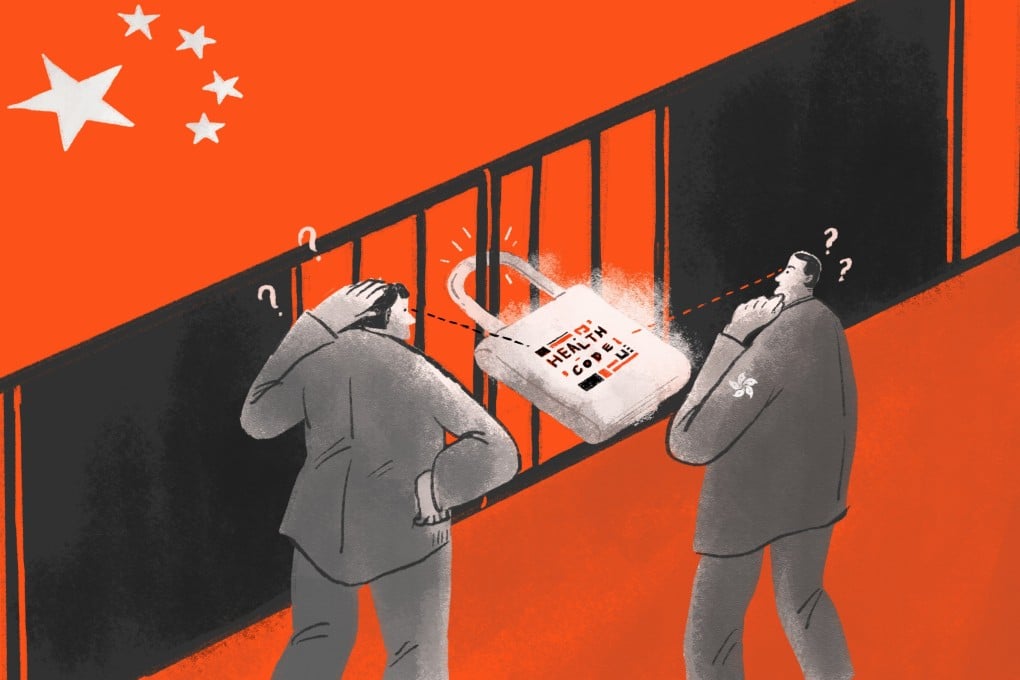Decoding the health code: can Hong Kong accept a mainland Chinese-style coronavirus app for border reopening?
- Experts say technology exists to align Covid-19 protocols with the mainland, but privacy fears and a sceptical public are stumbling blocks
- City’s former privacy watchdog chief urges a ‘mindset’ change, insisting there are adequate data protection laws on both sides

Decoding the demands of mainland Chinese authorities before the border with Hong Kong can reopen appears to have become a big guessing game for ordinary residents and bureaucrats alike.
Hong Kong has the technological prowess to launch a mainland-style, movement-tracking app for the border reopening, experts have said, but privacy concerns and public acceptance could emerge as major obstacles.
“We let apps such as Google Map track our whereabouts every day. But whether people are willing to allow the Hong Kong government – let alone mainland authorities – to do that is a very different question,” said Francis Fong Po-kiu, honorary president of the Hong Kong Information Technology Federation.
Stephen Wong Kai-yi, the city’s privacy watchdog chief until last year, however urged for “mindset adjustments”, saying both mainland China and Hong Kong had adequate data protection laws to deal with private intrusion problems triggered by such apps.
“It is also a public interest issue and there is a pressing need to address these legitimate issues as expected by members of the public and authorities concerned,” the former privacy commissioner for personal data added, referring to demand for unfettered access to the mainland.